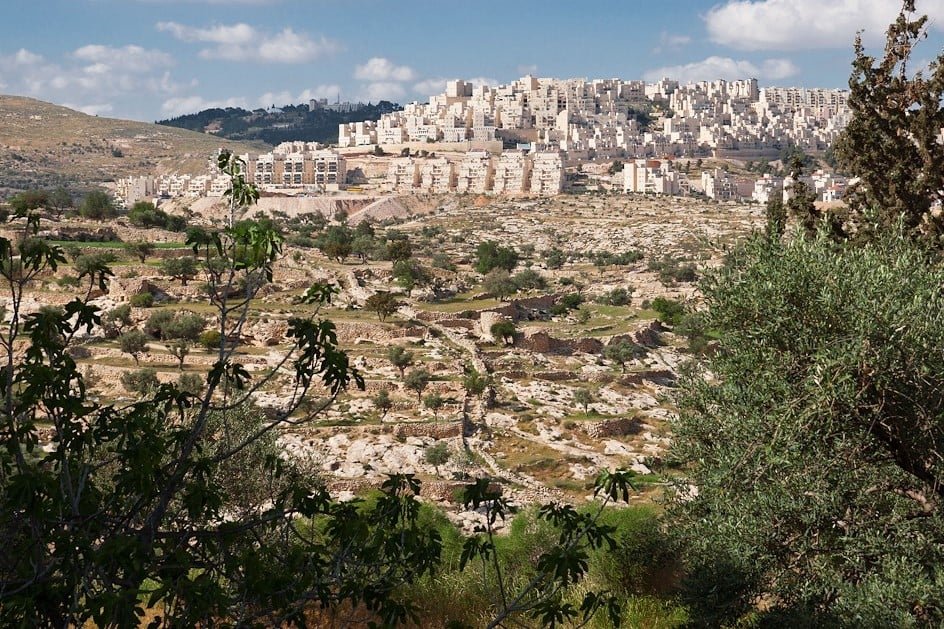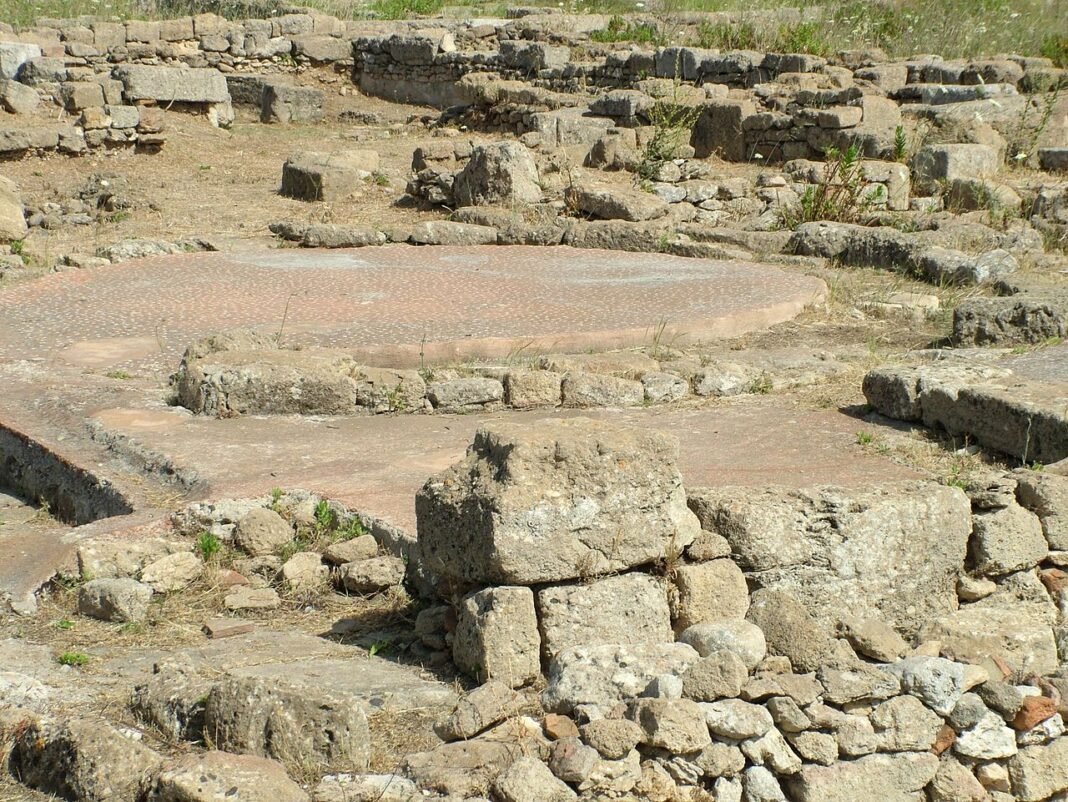
Israel’s decision to construct settlements in the E1 area on the West Bank “is unacceptable and a violation of international law,” said foreign ministers of 25 countries including Greece in a joint statement on Friday.
The move comes after an Israeli defence committee earlier this week gave its final approval for the controversial settlement project which has been frozen for two decades amid international opposition, as the 3,400 homes construction plan would cut off the occupied West Bank from East Jerusalem and divide the territory in two.
In the joint statement, also signed by the High Representative for Foreign Affairs and Security Policy and Vice-President of the European Commission, the 25 foreign ministers further call on Israel to retract the decision, which “risks undermining security and fuels further violence and instability.”
Meanwhile, the famine in Gaza was officially confirmed for the first time by the independent experts of the Famine Review Committee to have reached Phase 5, which means there is now reasonable evidence to support the claim.
25 states warn against Israel’s settlement plans on West Bank’s E1
The foreign ministers of Australia, Belgium, Canada, Cyprus, Denmark, Estonia, Finland, France, Greece, Iceland, Ireland, Italy, Japan, Latvia, Lithuania, Luxembourg, Malta, the Netherlands, Norway, Poland, Portugal, Slovenia, Spain, Sweden and the United Kingdom co-sign the joint statement that warns against Israel’s settlement construction plans on the E1 area on the West Bank.
“We condemn this decision and call for its immediate reversal in the strongest terms,” the text reads.
Israel’s Finance Minister Bezalel Smotrich defended the plan saying it will make a two-state solution impossible by dividing any Palestinian state and restricting Palestinian access to Jerusalem, but the 25 believe this brings no benefits to the Israeli people.
“Instead, it risks undermining security and fuels further violence and instability, taking us further away from peace,” according to their joint statement. “The Government of Israel still has an opportunity to stop the E1 plan going any further. We encourage them to urgently retract this plan,” they continue.
“Unilateral action by the Israeli government undermines our collective desire for security and prosperity in the Middle East. The Israeli government must stop settlement construction in line with UNSC Resolution 2334 and remove their restrictions on the finances of the Palestinian Authority,” the statement concludes.
Famine declared in Gaza
While international leaders are voicing their concern over Israel’s settlement plans on West Bank’s E1 area, the Famine Review Committee have confirmed starvation conditions in Gaza amidst the continued Israel Hamas war and declared famine in the area.
The latest Integrated Food Security Phase Classification (IPC) analysis by independent international food security experts that was released on Friday revealed that the current situation in the Gaza governorate area of Gaza has reached Phase 5, which means there is reasonable evidence to support famine conditions.
According to the report, evidence on acute malnutrition indicate that Famine thresholds have been met or passed, in this particular area, as fifteen percent or more children are acutely malnourished as measured by their Mid-Upper Arm Circumference. Complementary evidence showed rapidly worsening underlying factors of acute malnutrition.
The analysis adds that, although direct evidence on nutrition-related mortality is not available, indirect evidence suggests that deaths primarily due to undernutrition significantly exceed reported deaths as the Ministry of Health mortality counts are those that die in a health facility or whose body is taken to a health facility, missing deaths in the community.
Other areas of Gaza are currently classified as Phase 4 and 3, but the analysis projects that the famine will spread across the entire Gaza Strip in the coming weeks, unless a full-scale and sustained humanitarian aid programme is implemented.
“Current efforts, including airdrops, the Gaza Humanitarian Fund, and humanitarian aid operations, remain far from adequate even to achieve temporary improvement, given the extreme lack of access to food among the most vulnerable populations,” it points out.
Israel’s plans for the takeover of the Gaza Governorate “may increase the magnitude and severity of conditions expected in the coming weeks,” it concludes.


